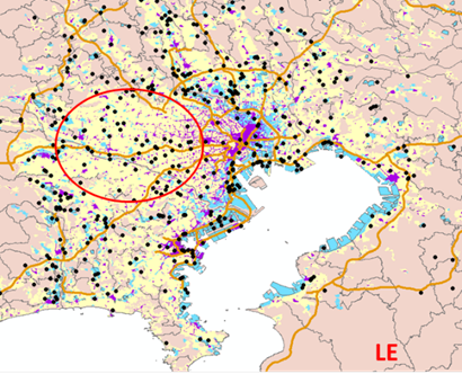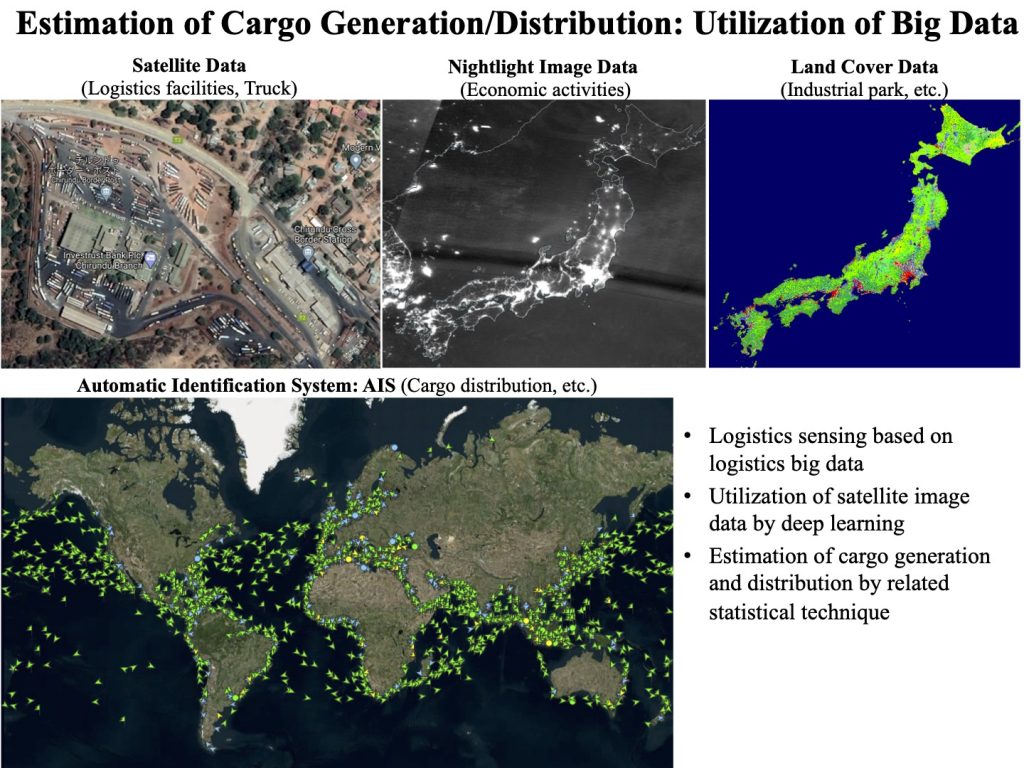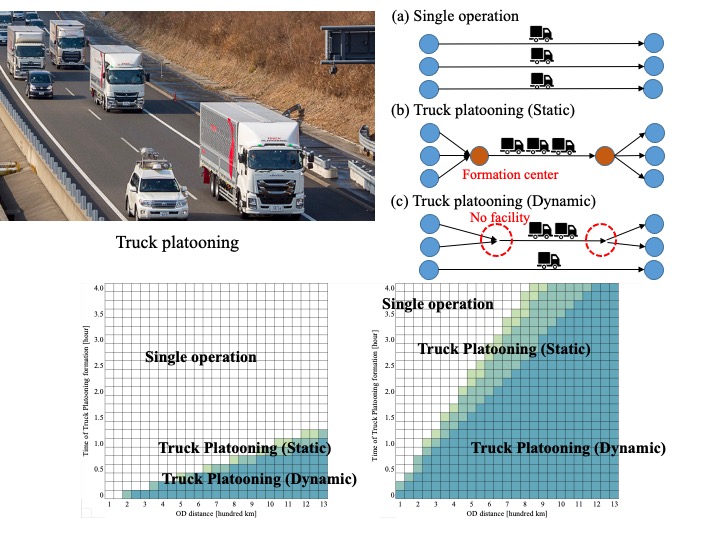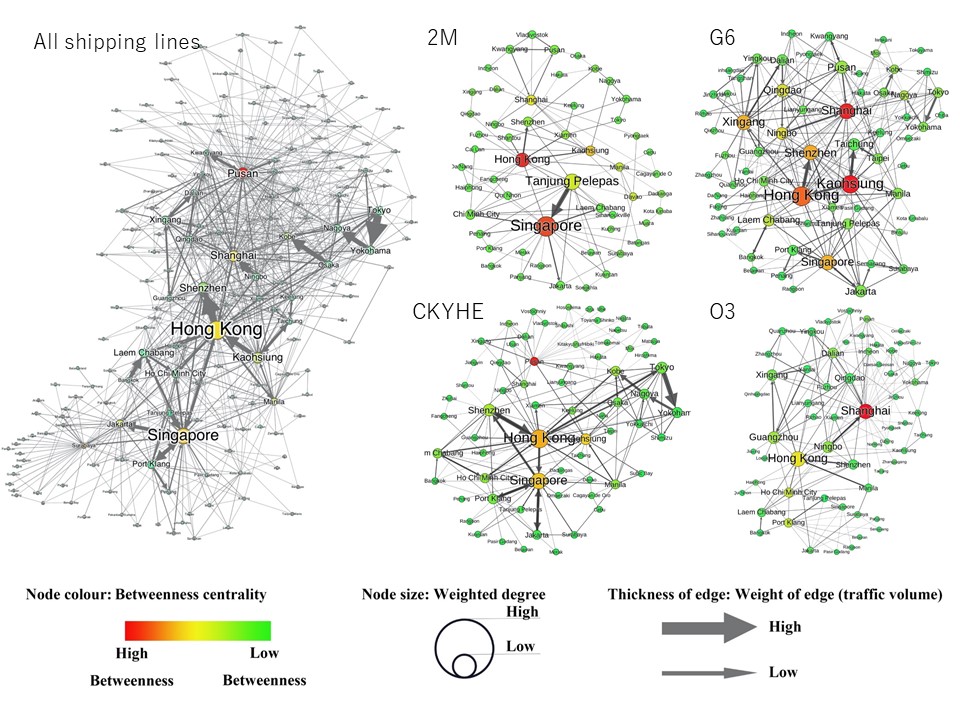Kawasaki Lab aims to contribute to sustainable development and rationalization of society by “designing” the complex logistics/social systems from the perspective of transport engineering, transport science, transport economics, and statistics. In particular, we are studying supply chain network simulation model, warehouse distribution forecasting model, logistics sensing method, global value chain, and technological innovation and logistics systems.
Supply chain network simulation model
Supply chain network simulation model at the metropolitan scale is developed in collaboration with industry and government. The model reproduces cargo flows and inventory states. The model also aims to take into account the heterogeneity of cargo, and is used for policy evaluation. We are also looking for exploring resilient supply chain networks with considering economic rationality.

Warehouse distribution forecasting model
The location of logistics facilities where cargo is generated and concentrated is also expected to change as a result of investment in transportation and logistics infrastructure and the implementation of land use policies. We have developed a model to predict the location distribution of logistics facilities to predict how they will change due to infrastructure investment and soft logistics facilitation. We are also analyzing the location of logistics facilities in the era of production bases and warehouse automation.

Logistics sensing
In order to reproduce the cargo flow with high accuracy, it is necessary to know the exact cargo volume in each zone (i.e., it is necessary to create an accurate OD table). In this laboratory, we are attempting to create a cargo OD table by sensing logistics using big data such as probe data and satellite data. In particular, we are trying to construct an estimation method using satellite data, which is available all over the world, and aim to apply the method to developing countries where socioeconomic indicators are not easily available.

Technological innovation and logistics systems
Technological innovation in the field of logistics is remarkable, and its effects are large and diverse. We are developing a model to measure the spillover effects of technological innovations such as container terminal automation, ship automation, and platooning driving.

Global supply chain
Based on the concept of global value chain, we analyze the industrial and trade structure of middle and low income countries. We analyze the actual situation of value-added trade using global data on business-to-business transactions, and examine how logistics and trade policies should be designed to promote national economic growth.

